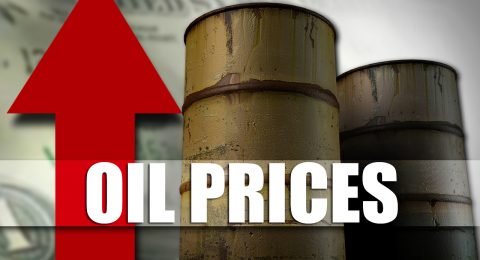During the past few days, the international oil sector witnessed an intense controversy after the U.S. Senate committee passed the “No Oil Producing and Exporting Cartels” or “NOPEC” bill.
This bill could expose the members of the Organization of the Petroleum Exporting Countries (OPEC) and its partners to lawsuits to intervene in the oil production volumes and thus control oil prices.
OPEC’s top members were swift in expressing their disapproval of such a bill, especially oil-rich Gulf member states, noting that this legislation would bring chaos to the energy market in addition to threatening oil investments.
Saudi Energy Minister Abdulaziz bin Salman said during the World Utilities Congress in Abu Dhabi that OPEC has been unjustly accused of being the culprit for the energy crisis as they are causing high prices due to production limitations, S&P Global Platts reported.
“The world needs to wake up. The world is running out of energy capacity at all levels. It is a reality. The world needs to work collectively, comprehensively in salvaging the world economy from supply chain issues, including energy,” stressed the Kingdom’s energy minister.
Additionally, Saudi Prince Turki Al-Faisal expressed his disapproval of these policies in an interview with Arab News saying that “We are not schoolchildren to be treated with a carrot and stick.”
The bill emerged after the OPEC members resisted the U.S. calls to raise the oil output to curb the inflation triggered by oil price hikes exceeding $100 per barrel due to Russia’s invasion of Ukraine and the West’s decision to ban Russian energy imports.
According to Reuters, the NOPEC bill will cancel the sovereign immunity that protects OPEC members and its national companies from lawsuits. If it becomes law, the U.S. Attorney-General will be allowed to charge any OPEC member in federal court.
For his part, UAE Energy Minister Suhail Al-Marzouei clarified that there is no need to raise the production volumes as OPEC sees the oil market as balanced and sufficiently supplied, but the lack of investments would threaten the future. “We’re wise and we’re balancing all these factors, but trust us,” Marzouei said.
“We don’t see any shortage, but again, we cannot guarantee that the shortage is not going to happen in the future. We could see potential shortage if we’re not investing,” he added. Marzouei noted that the decline in production was a request from the U.S. to OPEC after oil prices dived to record lows after shutdowns due to the coronavirus pandemic.
To become law, the bill should pass through the full Senate and House, then be signed by President Joe Biden. In a statement quoted by Bloomberg, White House Press Secretary Jen Pskai said that the consequences and possible implications of this bill need more study.
However, some analysts expressed concern that this decision could harm the U.S. economy as it will allow the other countries to take the same action against the U.S. in other sectors. Also, the American Petroleum Institute expressed its objection to this bill stating that this law would impact negatively the U.S. oil and natural gas industry.
It should be noted that this bill is not the first attempt for the U.S. to pass this law. It came to light in 2002 and faced fierce resistance from those representing the US oil interests.









